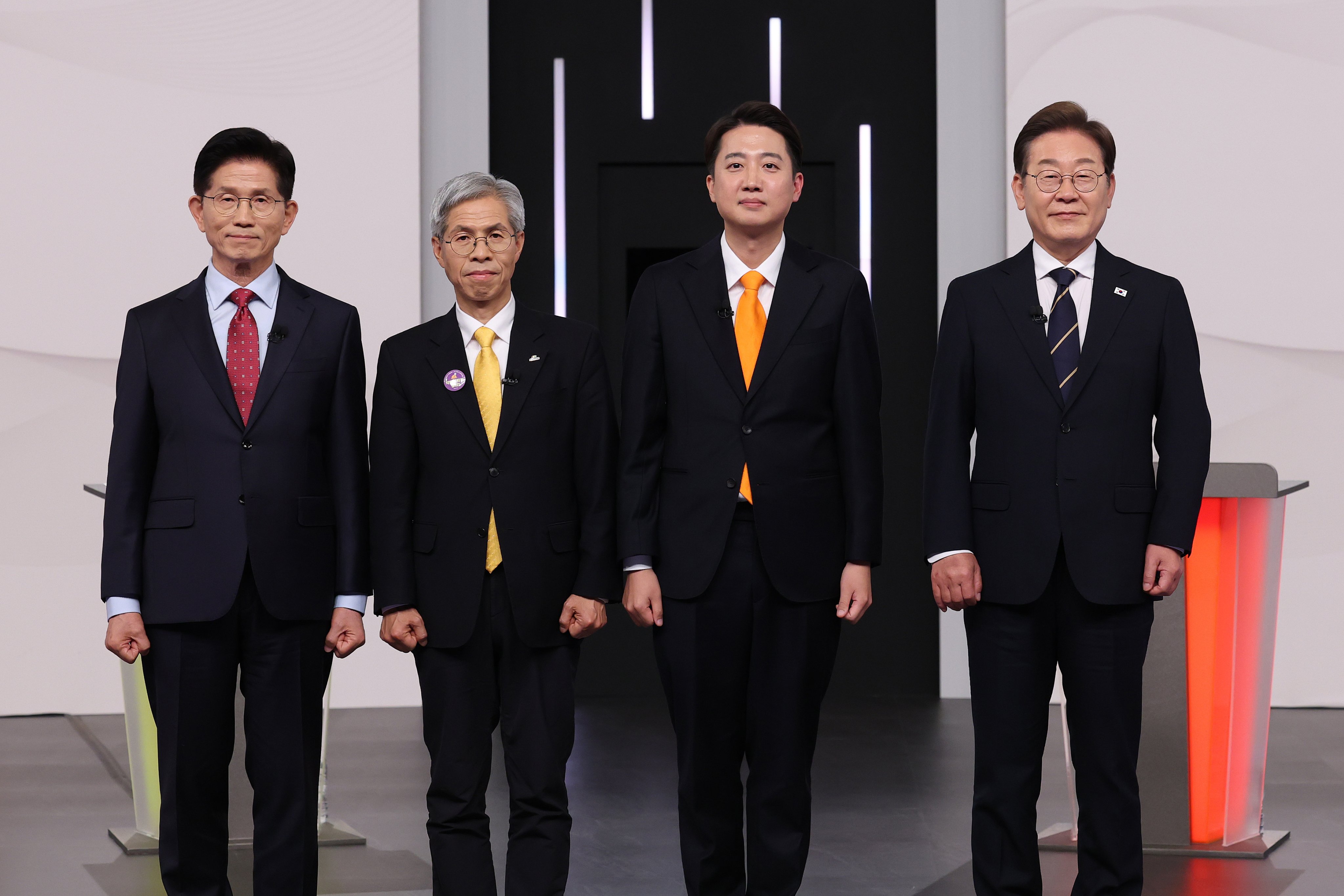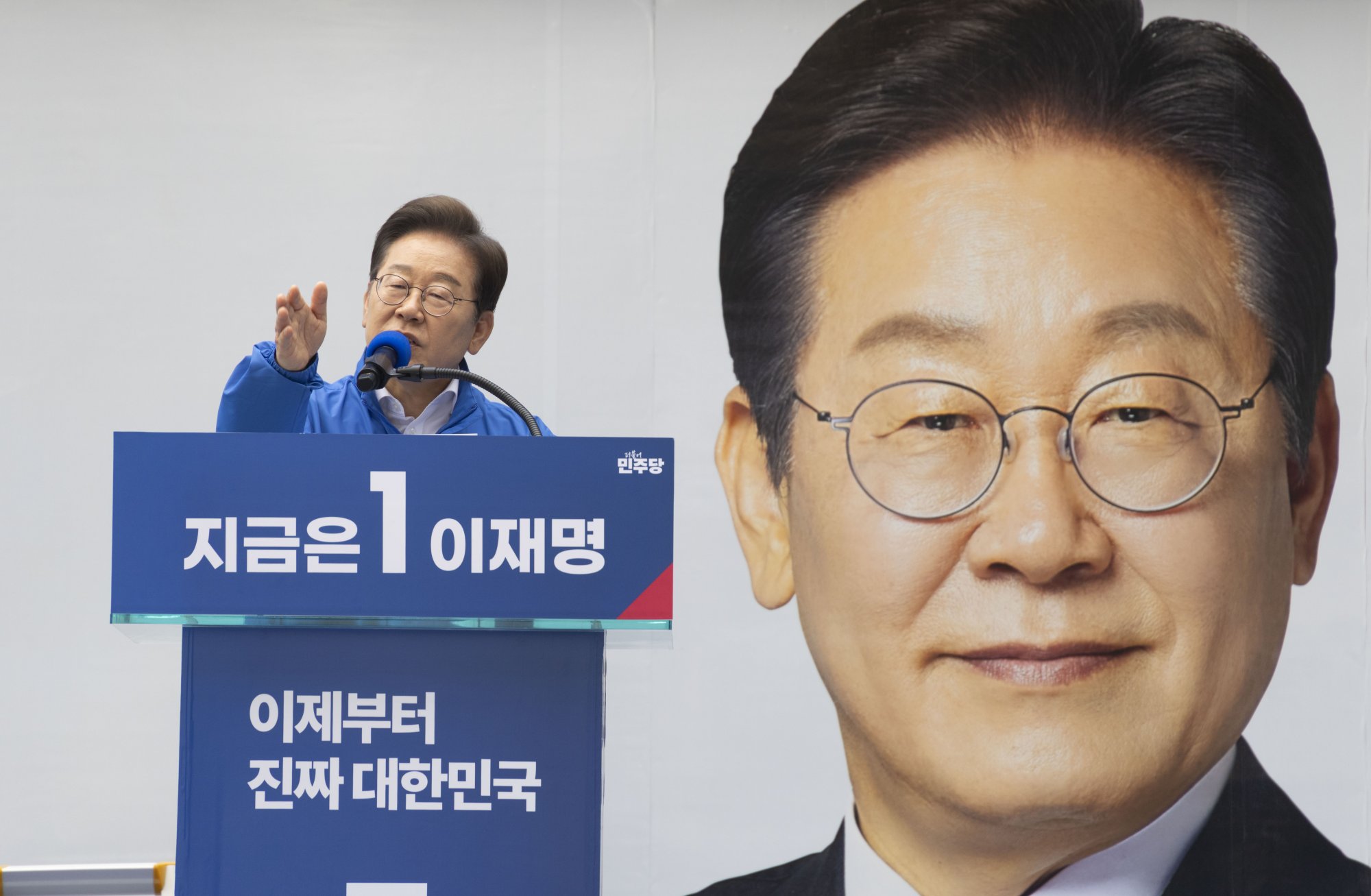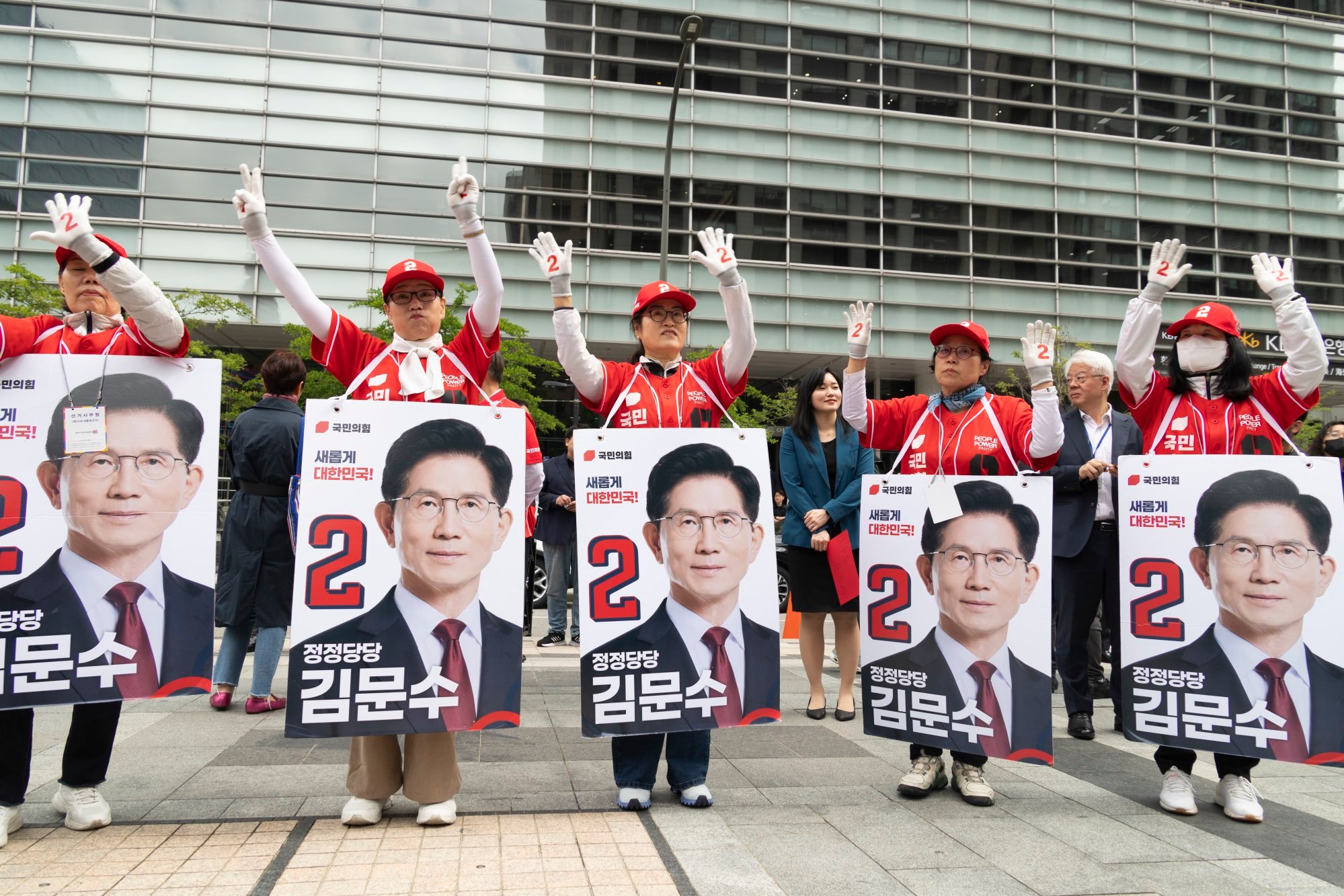South Korea’s presidential candidates clash over China and US, ‘pragmatic’ policy
PPP’s Kim Moon-soo has accused DPK’s Lee Jae-myung of lacking commitment towards the US-South Korea alliance and the THAAD system

South Korea’s presidential front runner Lee Jae-myung has signalled a “pragmatic” foreign policy pivot that could ease tensions with China and reverse his predecessor’s hawkish stance, according to observers analysing the country’s first televised debate ahead of the June 3 election.
Lee, the leader of the progressive Democratic Party of Korea (DPK), faced off against conservative challenger Kim Moon-soo and other candidates during the debate on Sunday, with foreign policy taking centre stage, particularly the future of South Korea’s ties with the United States and China.
Kim, the People Power Party (PPP) candidate and a former labour minister under Yoon, seized the moment to question Lee’s commitment to the US-South Korea alliance, suggesting his past remarks had raised concerns in Washington.
“In reality, isn’t the South Korea-US alliance extremely important to us?” Kim asked during the debate. “That alliance must be the fundamental axis. But considering the remarks you have made – and continue to make – it’s quite appalling from the US perspective.”
He accused Lee of undermining the alliance by previously opposing the US Terminal High Altitude Area Defence (THAAD) missile system deployed in South Korea, and failing to respond when then-Chinese ambassador Xing Haiming warned in 2023 that Seoul would “regret” siding too closely with Washington.
Lee rejected the notion that he was downplaying the alliance. “There’s no need to worry. The South Korea-US alliance is important and should continue to grow and strengthen,” he said.

But he added that Seoul should not rely on the alliance alone. “We shouldn’t exclude or antagonise China and Russia. Diplomacy must always prioritise national interest and be approached pragmatically.”
Kim warned that China would not take South Korea seriously without the presence of 28,500 US troops stationed in the country.
“What I’m saying is that our relationships with China and Russia are also important and must be managed wisely,” Lee responded. “Don’t push things to the extreme. We need to remain flexible and pragmatic.”
Lee Jun-seok of the minor opposition Reform Party pressed Lee on whether South Korea should get involved in a potential mainland China-Taiwan conflict.
“Don’t be too simplistic,” Lee replied. “We should prioritise national interests when making such decisions. We must avoid deep involvement in the [mainland] China-Taiwan conflict. It’s essential to respect the status quo and maintain a discreet distance.”
Beijing views Taiwan as a renegade province that should be reintegrated into mainland control, by force if necessary. While many nations, including the US, do not officially acknowledge Taiwan as an independent state, they oppose any use of force to alter the status quo.
The candidates also clashed over how to respond to steep tariffs imposed by the United States under President Donald Trump.
If the US continues this way, it won’t be sustainableLee Jae-myung, Democratic Party of Korea, on Washington’s tariffs
Kwon Young-kook of the pro-labour Justice Party criticised what he called Trump’s “tariff bombs” and asked for Lee’s response.
Lee warned of long-term damage to US credibility over the issue. “Diplomatic language is necessary,” Lee said. “If the US continues this way – eroding its soft power and the trust of other nations – it won’t be sustainable. At some point, brakes will be applied. Until then, endurance is key.”
South Korea should maintain leverage by highlighting its industrial strengths, particularly shipbuilding with the US seeking to revitalise its navy, Lee said.
Earlier this month, the Korea-US Integrated Defence Dialogue (KIDD) in Washington included talks on cooperation in naval shipbuilding and military aircraft maintenance. According to South Korea’s defence ministry, both sides agreed to explore collaboration in maintenance, repair and overhaul projects.
“South Korea sufficiently explained to the US its capabilities, technologies, and commitment to maintenance, repair, and overhaul of military aircraft and shipbuilding, and the US welcomed the proposals,” the ministry said.
The sharp exchange during the debate came against the backdrop of a political crisis that led to the impeachment and removal of conservative president Yoon Suk-yeol, whose declaration of martial law on December 3 sparked mass protests and condemnation.
Yoon was dismissed by South Korea’s constitutional court in April for abusing his powers, and now faces criminal charges of insurrection. His early exit, two years before his term was due to end, has left his conservative bloc scrambling to regroup.

Kim has struggled to broaden his appeal beyond Yoon loyalists, despite the former president’s recent call for conservatives to rally behind his protege.
Kim drew applause from Yoon’s supporters earlier this year when he remained seated in parliament as other ministers stood to apologise for the martial law debacle.
But the debate has highlighted how Lee has tapped into a growing desire for a less polarisation and a more interests-driven foreign policy, according to analysts.
“When he was in office, Yoon raised many eyebrows by suggesting South Korea might intervene directly in a China-Taiwan conflict, as if it were a global military power,” said Choi Jin, head of the Institute of Presidential Leadership.
Compared with Yoon’s aggressive posture, Lee was “relatively China-friendly” and seen as more pragmatic in his outlook, Choi said.
“There’s a consensus in this country that diplomacy should be guided by pragmatism and national interests. This principle applies everywhere,” he added.
Jeong Hoi-ok, a political scientist at Myongji University, said Yoon had deliberately stoked anti-China sentiment to mobilise younger voters – a strategy that ultimately backfired.
“China-bashing is not helpful for either our economy or security,” she said. “What we need is strategic flexibility based on national interest.”